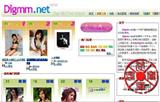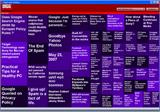NetEase tries Digg model to screen news
Netease has recently launched "Jueshi News," which often uses the digg method to filter news.
For portal sites like Netease, there is a large amount of news published every day, and in terms of information recommendation, it mainly relies on the "editor" model. Additionally, due to the large number of "reads and clicks" each day, this itself can form a kind of "filtering." Although Netease's adoption of the user-recommendation mode via digg is a good attempt, compared to the existing "filtering," it lacks sufficient active contributions.
Digg first requires "user-generated content," and in this step, the behavior required from users goes beyond just "clicking," ensuring that the "information" remains relatively high-quality, while low-quality information, due to lack of diggs, reduces the motivation for "contributors of junk information." Moreover, "fandom communities" and user behaviors are focused on "actively acquiring useful information," ensuring the quality of information. For reference, see Keso's: The Digg Illusion.
Due to the lack of "user-generated content" and users (Netease chose "social news" as an experiment) being primarily leisure-oriented, the quality of recommended information is not high. At this point, the value produced by digg is similar to that generated by click counts.
There are two aspects to consider:
The first is: digg can be combined with Netease's community. For the existing community, there exist different "fandom organizations." If "passports" and cookies function effectively, the digg results of these groups can be integrated with their community, promoting "information circulation."
The second is: for Netease's identity as a "portal," besides discovering information that is popular among the masses, it should also emphasize the "editorial" role —— the issue of obtaining popular information has been largely resolved, but public topics such as politics, economy, environmental protection, and public security may get drowned out. Screening out information that receives fewer clicks or reads but indeed holds value would be more meaningful, especially for portals. Moreover, in addition to "editors," corresponding algorithms could also be studied to assist.




